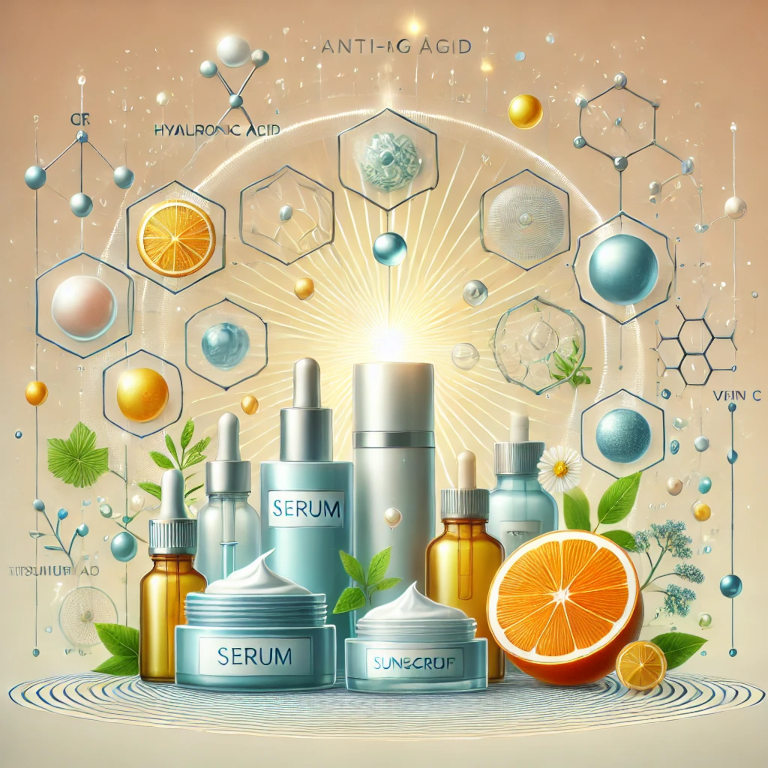Anti-aging skincare is a cornerstone of the beauty industry, focusing on preventing and reducing the signs of aging. With a multitude of products and treatments available, understanding the key components of an effective anti-aging skincare routine is crucial. As an expert in Fashion and Beauty, this article explores the science behind aging skin, essential ingredients, and best practices for maintaining a youthful complexion.
Understanding the Aging Process
Skin aging is influenced by both intrinsic and extrinsic factors. Intrinsic aging is a natural process driven by genetic factors and the passage of time. It results in gradual changes such as reduced collagen production, loss of elasticity, and the appearance of fine lines and wrinkles. Extrinsic aging, on the other hand, is caused by external factors like UV exposure, pollution, and lifestyle choices. These factors can accelerate skin aging, leading to premature wrinkles, age spots, and loss of skin tone.
Key Ingredients in Anti-Aging Skincare
To combat the signs of aging, certain ingredients are proven to be effective. Incorporating these into your skincare routine can help maintain youthful, radiant skin.
1. Retinoids
Retinoids, including retinol and prescription-strength retinoic acid, are derivatives of vitamin A. They are renowned for their ability to stimulate collagen production, accelerate cell turnover, and reduce the appearance of fine lines and wrinkles.
- Benefits: Improve skin texture, reduce wrinkles, fade age spots, and boost collagen production.
- Usage: Start with a lower concentration to build tolerance, applying it at night as retinoids can increase sun sensitivity.
2. Hyaluronic Acid
Hyaluronic acid is a powerful humectant that can hold up to 1,000 times its weight in water. It helps maintain skin hydration, plumpness, and elasticity.
- Benefits: Hydrates the skin, reduces the appearance of fine lines, and enhances skin plumpness.
- Usage: Apply to damp skin and follow with a moisturizer to lock in hydration.
3. Vitamin C
Vitamin C is a potent antioxidant that protects the skin from free radical damage, brightens the complexion, and stimulates collagen synthesis.
- Benefits: Reduces hyperpigmentation, brightens skin tone, and protects against UV damage.
- Usage: Use in the morning under sunscreen for enhanced protection against environmental damage.
4. Peptides
Peptides are short chains of amino acids that signal the skin to produce more collagen, elastin, and other proteins essential for youthful skin.
- Benefits: Improve skin firmness, reduce the appearance of wrinkles, and enhance skin barrier function.
- Usage: Incorporate peptide serums or creams into your daily routine for long-term benefits.
5. Sunscreen
Sunscreen is the most crucial anti-aging product. Daily use protects the skin from harmful UV rays that cause premature aging.
- Benefits: Prevents sun damage, reduces the risk of skin cancer, and minimizes the formation of wrinkles and age spots.
- Usage: Apply broad-spectrum SPF 30 or higher every morning, regardless of the weather.
Best Practices for Anti-Aging Skincare
1. Consistent Routine
Consistency is key in any skincare routine. Establish a morning and evening regimen that incorporates the essential anti-aging ingredients and stick to it.
- Morning Routine: Cleanser, vitamin C serum, moisturizer, sunscreen.
- Evening Routine: Cleanser, retinoid (or alternate nights with peptides), moisturizer.
2. Gentle Cleansing
Use a gentle cleanser to remove impurities without stripping the skin of its natural oils. Harsh cleansers can disrupt the skin barrier, leading to irritation and dryness.
3. Hydration
Keeping the skin hydrated is essential for maintaining its elasticity and suppleness. Use hydrating serums and moisturizers that contain hyaluronic acid, glycerin, or ceramides.
4. Exfoliation
Regular exfoliation helps remove dead skin cells, promoting cell turnover and enhancing the effectiveness of other skincare products. Use chemical exfoliants like alpha-hydroxy acids (AHAs) or beta-hydroxy acids (BHAs) for a gentle and effective exfoliation.
5. Healthy Lifestyle Choices
A healthy lifestyle can significantly impact your skin’s appearance. Eat a balanced diet rich in antioxidants, stay hydrated, get enough sleep, and avoid smoking and excessive alcohol consumption.
Professional Treatments for Enhanced Results
In addition to a robust at-home skincare routine, professional treatments can offer enhanced anti-aging benefits.
1. Chemical Peels
Chemical peels involve applying a solution to the skin that exfoliates and removes the top layers, promoting new skin growth and reducing the appearance of fine lines and wrinkles.
2. Microneedling
Microneedling uses fine needles to create micro-injuries in the skin, stimulating collagen production and improving skin texture and firmness.
3. Laser Therapy
Laser treatments target specific skin concerns such as wrinkles, hyperpigmentation, and loss of elasticity by promoting collagen production and skin regeneration.
Summary
Anti-aging skincare is a comprehensive approach that involves understanding the aging process, incorporating effective ingredients, maintaining a consistent routine, and making healthy lifestyle choices. By integrating retinoids, hyaluronic acid, vitamin C, peptides, and sunscreen into your daily regimen, you can significantly improve your skin’s health and appearance. For enhanced results, consider professional treatments like chemical peels, microneedling, and laser therapy. Embracing these strategies will help you achieve youthful, radiant skin and boost your overall confidence.






